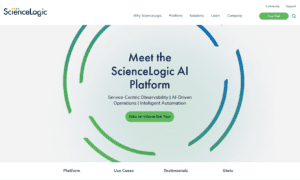The influence of information technology (IT) on how people work has never been more significant. From digital communication to cloud-based collaboration, IT has redefined the modern workplace, changing not just the tools we use, but also how we think, solve problems, and interact with one another. Whether you work in finance, healthcare, logistics, or government, IT is likely at the core of your day-to-day activities.
For professionals across industries, this transformation offers new opportunities to grow, specialize, and work more efficiently. It’s no longer just about keeping up with tech, it’s about actively using it to stay ahead. One of the most promising innovations gaining traction across industries is the concept of the digital twin. This technology offers real-time digital replicas of physical assets, providing deeper insights, predictive analytics, and better decision-making capabilities.
Automating routine tasks frees up time for impactful work
One of IT’s most immediate benefits is the automation of repetitive and time-consuming tasks. Whether it’s scheduling meetings, managing invoices, or tracking inventory, smart software can handle these functions more efficiently and with fewer errors than manual processes.
This shift allows you to focus on more valuable work, strategizing, analyzing, and innovating. For teams, this often leads to improved productivity and job satisfaction. No longer buried in admin tasks, you can redirect your attention toward work that truly adds value.
Data insights enhance everyday decision-making
Data is the new currency in today’s workplace, and IT is the vehicle that delivers its value. Through real-time dashboards, business intelligence platforms, and analytics tools, IT enables organizations to make faster, smarter decisions based on reliable insights.
From tracking customer behavior to forecasting sales or monitoring performance, data empowers you to act with confidence. Even basic familiarity with tools like Excel, Power BI, or Tableau can give you a major edge in your role, allowing you to analyze patterns, test ideas, and optimize outcomes with precision.
Remote work and hybrid models made possible by IT
Work no longer has to take place at a desk in a corporate office. Thanks to cloud platforms, virtual private networks (VPNs), and communication tools like Zoom, Teams, and Slack, you can now work from virtually anywhere with a secure internet connection.
This flexibility not only supports better work-life balance but also opens doors to new job opportunities outside your immediate location. IT has made it easier to collaborate across time zones, manage projects in real time, and stay connected, regardless of where you’re physically located.
IT enhances collaboration and teamwork
Digital collaboration tools like shared documents, project management platforms, and real-time messaging apps have become essential in nearly every industry. They break down silos, speed up workflows, and help teams stay aligned, even when working remotely.
Platforms like Asana, Trello, Jira, or Notion help teams manage projects transparently. Everyone knows what’s being worked on, who’s responsible, and what the deadlines are. This clarity makes collaboration smoother and more efficient, especially in larger organizations.
What embracing IT means for your career
The increasing role of IT in the workplace isn’t a passing trend, it’s a fundamental shift in how work is done. Embracing this shift not only keeps you competitive, but also opens up new career paths, increases your autonomy, and enables you to be more productive and fulfilled in your role.
Whether you’re already tech-savvy or just beginning to explore your digital potential, investing in your IT knowledge pays off. The future of work is digital, and by leaning into that future, you put yourself in a stronger, smarter, and more flexible position.
What embracing IT means for your career
The increasing role of IT in the workplace isn’t a passing trend, it’s a fundamental shift in how work is done. Embracing this shift not only keeps you competitive, but also opens up new career paths, increases your autonomy, and enables you to be more productive and fulfilled in your role.
Whether you’re already tech-savvy or just beginning to explore your digital potential, investing in your IT knowledge pays off. The future of work is digital, and by leaning into that future, you put yourself in a stronger, smarter, and more flexible position.

































